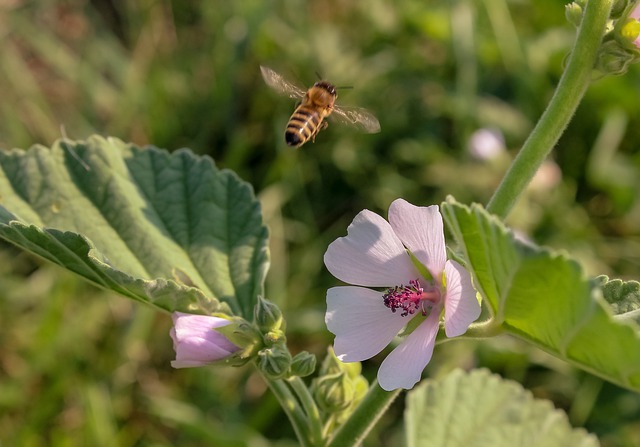Minnesota is the first state that will pay homeowners to transform their lawns into bee-friendly habitats filled with wildflowers, clover, and other native plants. The state is asking citizens to stop spraying herbicide, stop mowing so often, and let their lawns re-wild into a more natural state
That’s because the state legislature has passed a bill — Lawns to Legumes – that was signed into law the beginning of June 2019 — to pay homeowners up to 75 percent of the expenses involved in each lawn conversion and up to 90 percent in areas that can support rusty patched bees according to the Star Tribune. The budget is set to $900,000 annually, and it is an effort to help the state’s declining bee population.
The rusty patched bumble bee, Bombus affinis, has been labeled as an endangered species and is on the brink of extinction. Minnesota is one of the last places where this species lives. Although the wildflowers and native grasses will benefit all species of bees, the hope is that this program can breathe new life to these pollinators.
See also: Bumblebee has been officially listed as one of the endangered species
The program will cover up to $350 of the cost for homeowners who convert their lawns. The grants may cover more in areas targeted as “high potential” to support rusty patched bees.
The three-year program will be launched with at least 20 workshops around the state
State Representative Kelly Morrison, who introduced this groundbreaking legislation, told the Star Tribune that she hopes the program will be ready by spring 2020.
“I have gotten a ton of e-mails and so much feedback from people who are interested in this,” Morrison said. “People are really thinking about how they can help.”
The loss of native prairie and other wild habitat across the country has made flowering lawns in suburbs and cities more and more important to pollinators, said James Wolfin, a graduate student at the U who has been researching bee diversity and habitat.

“A pound of Dutch white clover is about $7 and it grows low enough that people wouldn’t even have to change the way they mow their lawn,” Wolfin said. “So just by not treating white clover like a weed and letting it grow in a yard provides a really powerful resource for nearly 20% of the bee species in the state.”
Hopefully, the new law will have a significant enough impact on the viability of these fragile pollinators that the state will continue the funding for many years to come so that the bees and the agriculture they support will thrive.
The legislation allocated $900,000 for one year of grants to interested homeowners. You can get more information on the website of the state Board of Water and Soil Resources (BWSR), the agency that will run the program how homeowners can apply for the grants.
“For people that are within the rusty patched bumble bee zone they’ll be eligible for $500,” Dan Shaw, senior ecologist for the state Board of Water and Soil Resources, told MPR in August 2019. “People in our secondary pollinator corridors in the state will be eligible for $350, and then people outside of those two areas will be eligible for $150.”
Source: www.startribune.com

